The 2026 Comprehensive Guide For Selling A House With Delinquent Taxes In North Carolina
- What Are Property Taxes in North Carolina
- Overview Of Counties In North Carolina And Their Specific Property Tax Rules
- Property Tax Assistance Programs in North Carolina
- Selling a House With Back Taxes in NC: How to Navigate the Process
- How to Stop Property Tax Sale in North Carolina
- Step‑by‑Step Guide To The Tax Foreclosure Process In North Carolina
- Sell My House With Back Taxes in North Carolina
- Things to Consider Before Selling a House With Back Taxes
- North Carolina Tax Defaulted Properties
- Options for Selling A House With Delinquent Taxes In North Carolina
- Can You Buy A House By Paying The Back Taxes In North Carolina?
- How Long Can Property Taxes Go Unpaid In North Carolina?
- How Do I Stop Property Tax Foreclosure In NC?
- Summary of the NC Foreclosure Process
- Additional Resources For North Carolina Sellers
- Frequently Asked Questions
- Selling a House With Delinquent Taxes
What Are Property Taxes in North Carolina
Property taxes in North Carolina are a critical component of local government funding. These taxes are calculated based on your property’s assessed value and support essential public services, including schools, police, and road maintenance.
Tax rates vary depending on your specific location within North Carolina. Each county and municipality sets its own tax rate, so similar properties in different areas can owe very different tax bills.
Check with your local tax assessor’s office to understand the rates that apply to your property. North Carolina law requires that each county reassess property values every eight years. Some counties reassess on a different schedule, like Mecklenburg County, which reassesses property values every four years. The assessment process in North Carolina follows standardized procedures, and homeowners can appeal their assessments if they believe the valuation is incorrect.
Understanding property tax assessments can help you navigate the system more effectively. Property values are typically reassessed on a regular cycle.
When property taxes remain unpaid, the consequences can be severe. Tax deed processes in North Carolina can result in foreclosure and public auction of the property.
Homeowners do have options even when facing back taxes. Understanding your county’s specific rules and timelines is essential, as North Carolina’s 100 counties may have different procedures for handling delinquent property taxes and relief programs.
Address property tax issues promptly, as interest and penalties can increase the total amount owed over time.
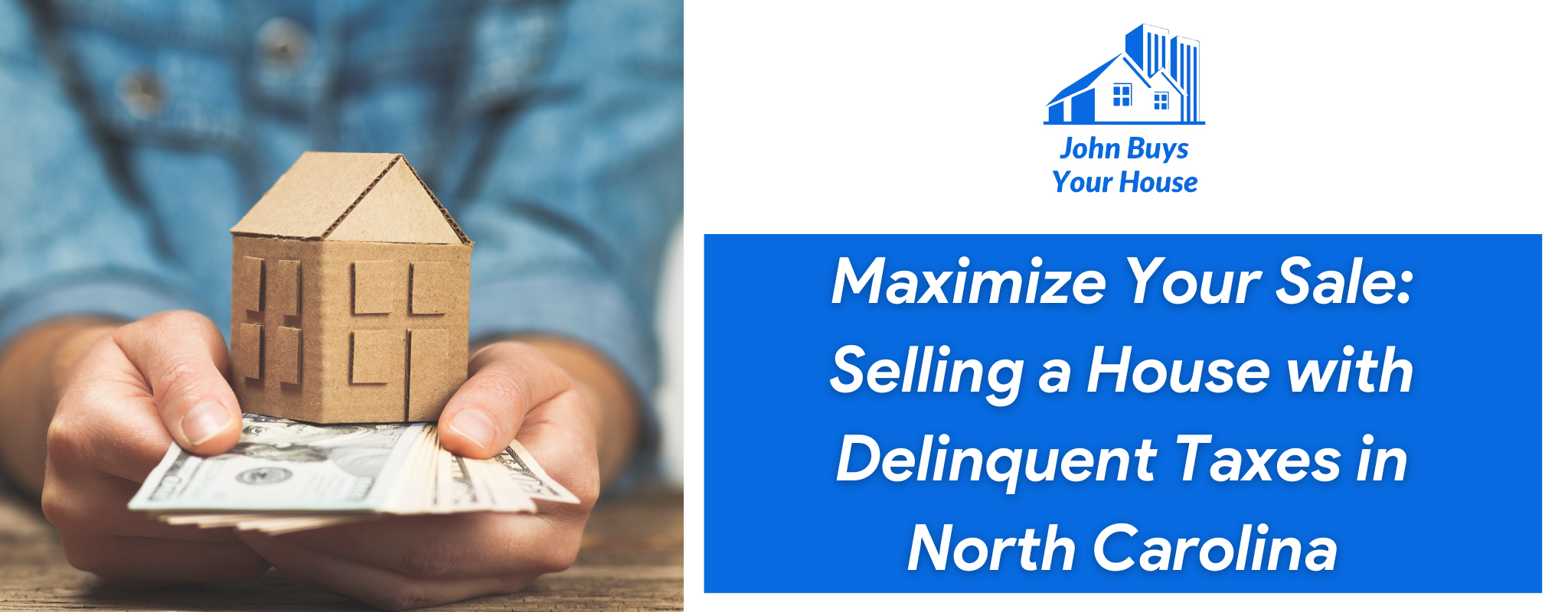
Overview Of Counties In North Carolina And Their Specific Property Tax Rules
North Carolina consists of 100 counties, ranging from 3,500 parcels to 220,000 parcels.
Each county operates under different property tax structures and collection methods.
Tax Rate Variations
Property tax amounts differ significantly across counties.
Orange County collects the highest property tax, averaging $2,829 yearly, while Montgomery County has the lowest rates in the state.
County-Specific Rules
Counties set their own tax rates and establish unique policies for:
- Late payment penalties and interest charges
- Early payment discounts for timely submissions
- Payment plan options for delinquent accounts
- Assistance programs for qualifying homeowners
Local Government Structure
County commissioners govern these tax policies.
Board sizes vary from three to eleven members, elected either by district or at-large positions.
Local governments set their own tax rates within North Carolina’s uniform statutory framework.
Property Tax Assistance Programs in North Carolina
For homeowners facing financial difficulties, assistance programs exist throughout the state. These programs can provide relief through:
- Payment plans for delinquent taxes
- Exemptions for qualifying seniors or disabled individuals
- Hardship deferrals in specific circumstances
- Veterans’ exemptions for eligible service members
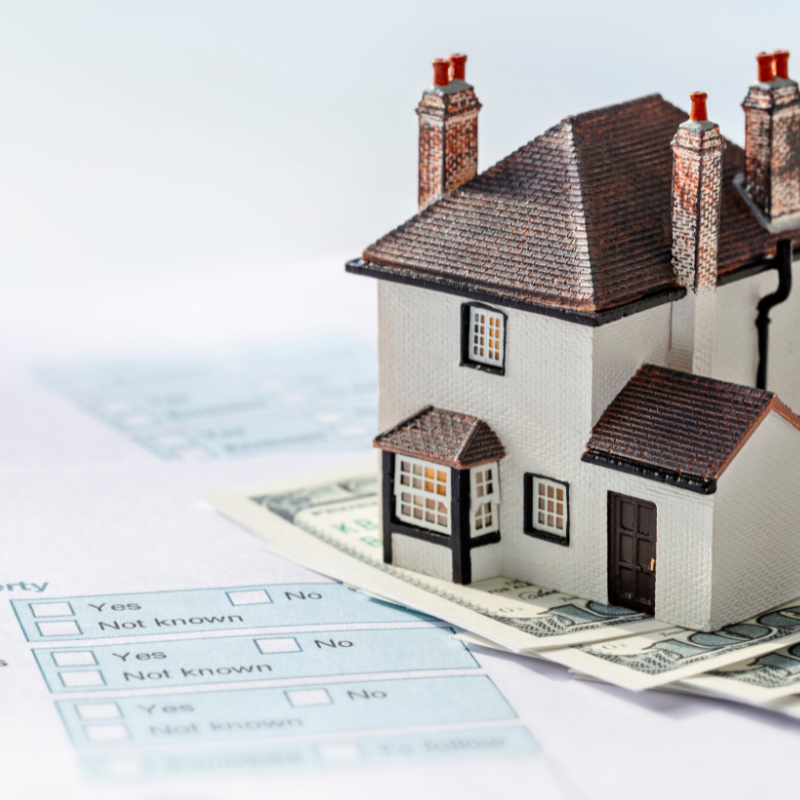
North Carolina offers several property tax relief programs to help residents manage their tax obligations. The state provides three main types of assistance that local governments can implement for property owners.
- Elderly and disabled exclusion – Reduces tax burden for qualifying seniors and disabled individuals
- Disabled veteran exclusion – Special tax relief for veterans with service-connected disabilities
- Circuit breaker deferment – Allows eligible homeowners to defer payments
The Property Tax Division of the North Carolina Department of Revenue administers various programs. These can include payment plans for those struggling to pay taxes in full.
Property values have increased by 67.1 percent since the pandemic, making these programs more critical for homeowners on fixed incomes.
Selling a House With Back Taxes in NC: How to Navigate the Process
Local counties like Mecklenburg and Orange County offer additional assistance programs with specific application requirements. Community organizations and nonprofits also provide resources for homeowners facing delinquent tax situations.
Selling a house with back taxes in NC adds complexity to the process. Property owners must navigate intricate tax regulations and legal requirements.
In North Carolina, foreclosure sales—whether tax, mortgage, or lien related—follow a similar process governed by state law and overseen by the county Clerk of Court. Delinquent taxes can lead to foreclosure and public auction if not resolved in time.
Working with qualified professionals is essential when you want to sell a house with back taxes in NC. Your team should include:
- Real Estate Expert: A local real estate consultant with experience in tax issues
- Tax Attorneys: Legal professionals specializing in property tax law
- Tax Consultants: Experts who can calculate obligations and negotiate payment plans
- Real Estate Attorneys: Professionals who handle closing procedures and legal documentation
Finding the right county office is crucial for resolving delinquent tax issues. Each county in North Carolina maintains separate procedures and contact information.
| Factor | Consideration |
|---|---|
| County Location | Property location determines jurisdiction |
| Tax Type | Real estate vs. personal property taxes |
| Assessment Status | Whether taxes are assessed and overdue |
Access county office contact information before starting the process. Early communication with your county office increases your options to stop property tax sale and avoid foreclosure.
Taking action early helps you negotiate payment plans and settlement options before the situation escalates. Professional guidance and timely communication with officials are key to selling a house with back taxes in NC successfully.
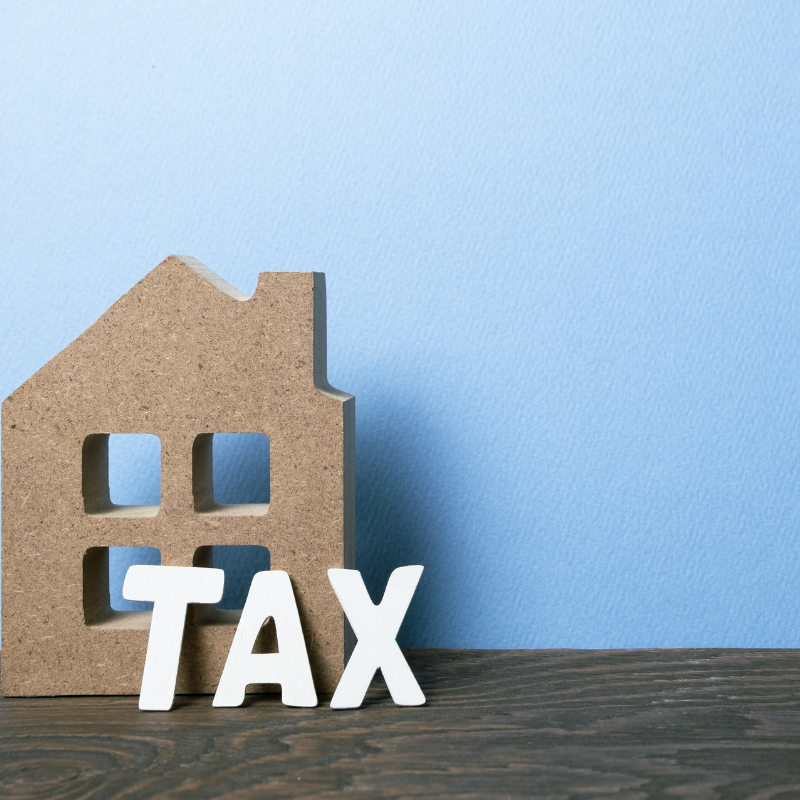
How to Stop Property Tax Sale in North Carolina
If you are behind on property taxes, acting quickly is critical to stop property tax sale in North Carolina. The fastest way to the stop the sale of your home is to pay the back taxes all at once. If that is not possible, contact your county tax office as soon as possible to discuss payment plans or hardship options.
Many counties offer payment arrangements that allow you to catch up on delinquent taxes over time. Some homeowners may qualify for hardship deferrals or exemptions, especially seniors, disabled individuals, or veterans.
Professional help from a tax attorney or real estate consultant familiar with the tax foreclosure process in North Carolina can make a significant difference. They can help you negotiate with county officials and explore all available relief programs.
Stopping a property tax sale requires proactive communication and thorough documentation. Early intervention is your best chance to keep your home and avoid foreclosure.
Step-by-Step Guide To The Tax Foreclosure Process In North Carolina
The North Carolina tax auction process follows specific legal steps that are important to understand.
Here’s how the process works:
1. Notice of Default The homeowner will receive the first formal notice when payments are missed.
This is typically sent at least 45 days before the tax filing.
2. Court Filing In North Carolina, County’s cannot sell property without going to court.
The County hires an attorney and they must get a court order before proceeding with any sale.
The Kania Law Firm and Ruff, Bond, Cobb, Wade, & Bethune Law Firm handle the majority of the North Carolina tax auctions.
3. Notice of Sale After court approval, the homeowner receives a notice of sale that announces the upcoming public tax auction.
4. Public Sale The property goes to public tax auction where the highest bidder wins.
In North Carolina, the winning bid can be “upset” within 10 days. This allows for the previous owner to redeem ownership to the property by paying off the back taxes plus attorney fees or for other buyers to make a bid larger than the previous winning bid.
5. Final Transfer If no redemption or upset bid are placed or it’s been at least 10 days since the previous bid, the closing process is started with the winning bidder.
In North Carolina, foreclosure sales—whether tax, mortgage, or lien related—follow a similar process governed by state law and overseen by the county Clerk of Court.
Sell My House With Back Taxes in North Carolina
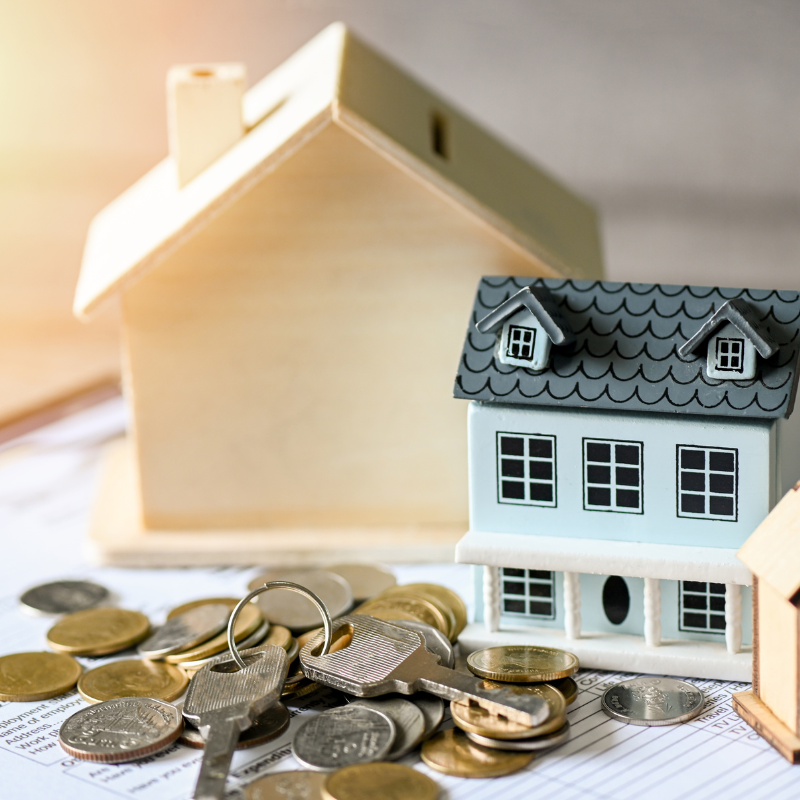
If you are considering selling your house with back taxes, work with a local real estate expert. John Buys Your House provides comprehensive support for North Carolina homeowners facing tax challenges while trying to sell their properties. Even if you choose a different route, John Buys Your House is happy to provide support, resources, and information on how best to proceed.
We understand that navigating property tax issues can feel overwhelming and stressful. We cover all back taxes, attorney fees, closing costs, and do not charge any fees or commissions to you. We don’t ask you to do any repairs or clean the home either.
Give us a call or reach out through our website for more information about North Carolina’s tax laws and rules specifically designed for homeowners who have fallen behind on payments.
We have organized these resources to help you understand your options and develop effective strategies.
Key resources include:
- Complete guides on managing tax burdens
- Information on reducing your overall tax obligations
- Easy-to-navigate sections covering different scenarios
- Step-by-step processes for handling tax complications
Sell Your House Fast For Cash In North Carolina Today 💰
Things To Consider Before Selling A House With Back Taxes
Facing overdue property taxes in North Carolina, it’s important to understand the state’s tax laws and regulations before moving forward with a sale.
Gather all essential documentation related to our property’s tax history.
Key documents to collect:
- Assessment notices
- Payment records
- Tax statements
- Penalty notifications
It’s likely that there are additional costs beyond the original tax amount which could include attorney fees, late fees, and other penalties.
North Carolina imposes interest charges and penalty fees on delinquent property taxes, which accumulate over time.
Understanding the consequences of delinquent taxes helps us prepare for the selling process.
Then, calculate the total amount owed, including:
| Cost Type | Details |
|---|---|
| Back taxes | Original unpaid amount |
| Interest | Accumulates monthly |
| Penalties | Added for late payment |
North Carolina Tax Defaulted Properties

North Carolina does not sell tax lien certificates and instead holds tax auctions. This is a slightly different approach from other areas, and it has pros and cons.
Properties in North Carolina with unpaid taxes face tax foreclosure proceedings where ownership transfers from the delinquent taxpayer to a new owner after an auction. This process takes time and can be helpful to the current owner to arrange a sale or pay the back taxes.
Counties have authority to seize and sell properties through tax deed sales to recover back taxes.
However, you can prevent foreclosure by paying delinquent taxes, interest, and costs before judgment is finalized.
However, payment of taxes prior to public auction does not transfer ownership of the property to the person making payment.
The time to sale varies based on whether counties use in rem or mortgage style foreclosure processes. One negative of North Carolina’s process is that attorneys handle the sale. This can often mean additional fees and costs beyond just the unpaid taxes.
Options for Selling A House With Delinquent Taxes In North Carolina
Selling a house with back taxes owed is possible in North Carolina as long as you understand the legal requirements and timing involved.
When property taxes remain unpaid, counties can seize and sell properties through tax deed sales to recover outstanding amounts.
Key Legal Requirements:
- Pay delinquent taxes before closing
- Provide clear title to buyers
- Address any existing tax liens
There are several options when facing this situation:
| Option | Description | Timeline |
|---|---|---|
| Pay in full | Clear all back taxes immediately | 1-2 weeks |
| Payment plan | Negotiate installments with county | 30-90 days |
| Quick sale | Sell to cash buyers who handle taxes | 7-30 days |
Tax foreclosure processes vary by county, using either in rem or mortgage-style procedures.
John Buys Your House cannot purchase properties through tax certificates in North Carolina, as the state only allows tax foreclosure sales.
Working with a company that buys houses for cash can help navigate these challenging situations effectively while avoiding foreclosure.
Can You Buy A House By Paying The Back Taxes In North Carolina?
No, you cannot buy a house in North Carolina by paying someone else’s back taxes. North Carolina does not allow the purchase of a property by tax certificate or purchase of a tax obligation.
Paying someone else’s taxes will not entitle you to any legal ownership of the property.
Payment of the tax lien prior to sale at public auction will not transfer ownership of the property.
The only way to buy a house with delinquent taxes is to participate in the tax foreclosure sale or buy the property before it goes to auction.
When a tax foreclosure auction takes place, ownership transfers from the delinquent taxpayer to a new owner.
You must participate in the official foreclosure auction process to legally acquire these properties or buy from the owner before the property goes to auction.
How Long Can Property Taxes Go Unpaid In North Carolina?
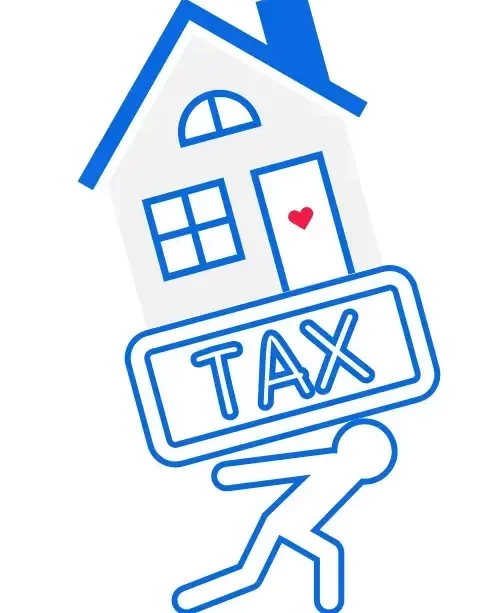
In North Carolina, property owners typically have up to two years before counties initiate court proceedings for unpaid taxes.
However, enforced debt collection may begin immediately upon an account reaching delinquent status.
The timeline varies by county, but most follow this general pattern:
- Year 1: Taxes become delinquent after the due date.
- Year 2: Counties may begin foreclosure proceedings.
- Additional costs: Interest and penalties accumulate throughout this period.
North Carolina General Statutes require specific actions when taxes remain unpaid.
Counties can pursue various collection methods including:
- Wage garnishment
- Bank account attachment
- Property seizure
- Tax foreclosure proceedings
Property owners should act quickly to avoid additional fees and legal costs.
How Do I Stop Property Tax Foreclosure In NC?
Contact your local tax office immediately to discuss payment options.
Most counties offer payment plans that allow you to catch up on delinquent taxes over time.
This is often the fastest way to stop property tax sale before the auction process begins.
Payment Options Available:
- Monthly payment plans
- Partial payment arrangements
- Hardship deferrals
- Settlement negotiations
Stay in regular contact with the tax collector’s office.
Making consistent payments shows good faith and helps avoid additional penalties and interest charges.
Professional help makes a difference.
Real estate attorneys can negotiate with tax authorities on your behalf and explore legal options to delay foreclosure proceedings.
They understand North Carolina foreclosure laws and can guide you through complex requirements.
If you cannot catch up on payments, selling your property quickly might be your best option.
You can sell house with back taxes in NC and use the proceeds to pay off the tax debt before foreclosure occurs.
Summary of the NC Foreclosure Process
In North Carolina, foreclosure sales, whether tax, mortgage, or lien related, follow a similar process governed by state law and overseen by the county Clerk of Court.
The process includes notification of delinquency, an opportunity to cure the default, and a public auction if the debt remains unpaid.
Additional Resources For North Carolina Sellers
We offer fast solutions for property owners facing complex situations in North Carolina.
Our process helps sellers navigate judicial foreclosure, real property tax issues, and deed of trust complications efficiently.
Key Services:
- Escrow account management
- Court document preparation
- Coverage across North Carolina with specific expertise in Mecklenburg County
- Certified mail notifications
| Service Type | Timeline | Coverage |
|---|---|---|
| Foreclosure assistance | Days not months | Statewide |
| Tax collector negotiations | Immediate | All counties |
| Bankruptcy proceedings support | Varies | Full legal support |
We work with attorneys, law firms, and the clerk of superior court to ensure proper docketing.
Our team handles judgments, mortgage issues, and debt resolution through established repayment plans.
Sell My House Before Tax Auction
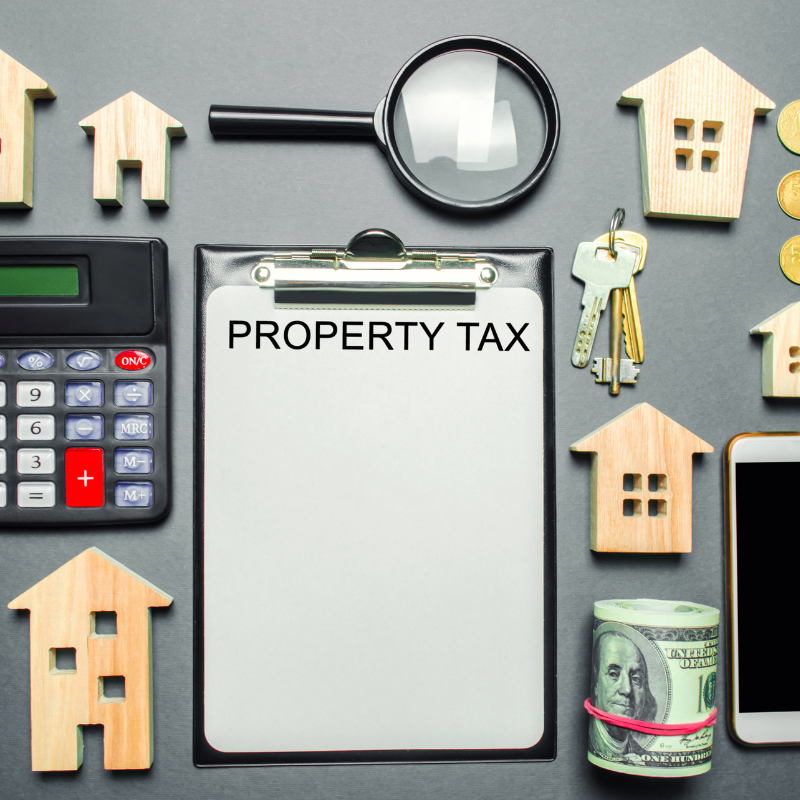
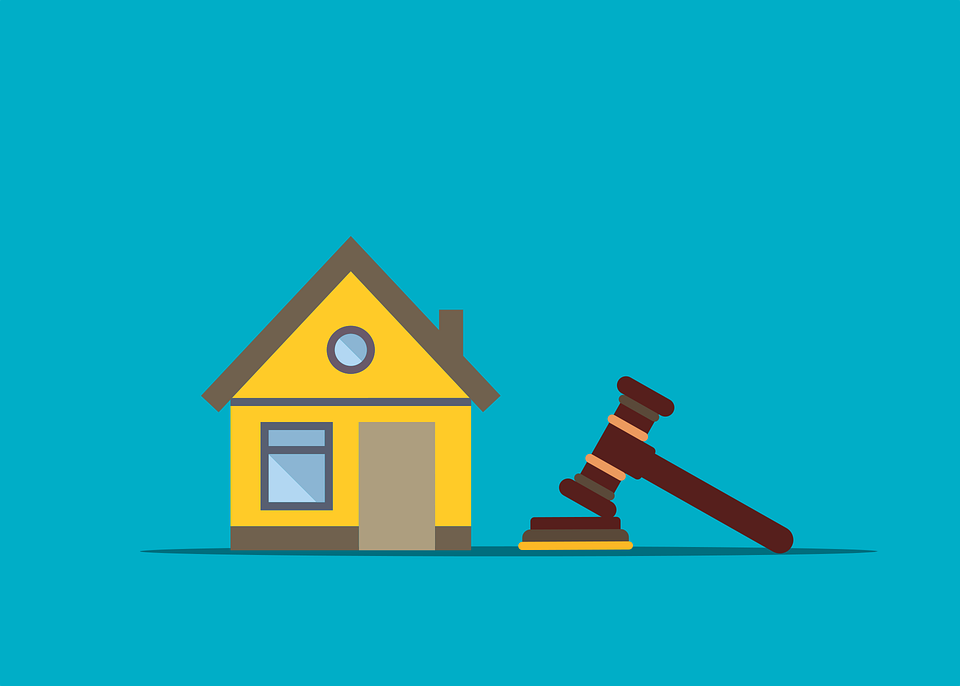
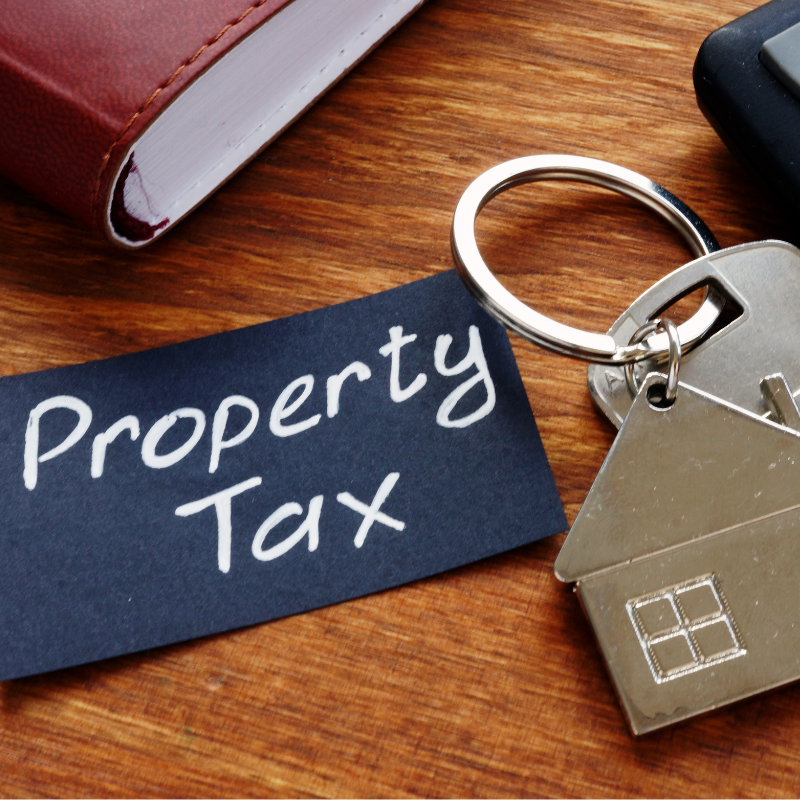
Frequently Asked Questions
Can you sell a house if you owe property taxes?
Yes! All properties sold in North Carolina have the current (and any previous years) taxes paid at closing. We work with local, reputable closing attorneys to handle all the paper work and make sure the property is sold legally, quickly, and fairly.
What is the process for selling a house with delinquent taxes in North Carolina?
You can sell house with back taxes NC, but timing and process matter.
The sale process involves several key steps.
First, determine the exact amount owed in delinquent taxes, including interest and penalties.
Contact the county tax office to get a current payoff statement.
Next, you have three main options:
- Pay the taxes before closing using proceeds from the sale
- Negotiate with the buyer to handle the tax debt
- Sell to a cash buyer who specializes in properties with tax issues
Disclose the tax debt to potential buyers upfront for transparency and trust.
How can I find a list of tax delinquent properties for sale in North Carolina?
You can find tax delinquent properties through several methods in North Carolina.
Each county maintains records of properties with outstanding taxes.
County websites often list properties scheduled for foreclosure sales.
For example, counties post lists of properties scheduled for upcoming sales on their official websites.
You can also check:
- County tax collector offices
- Public records at the courthouse
- Online tax foreclosure websites like NC Tax Foreclosures
- Legal newspapers that publish foreclosure notices
Note: North Carolina State law prohibits the selling of property tax liens, so you cannot purchase tax certificates as in some other states.
What are the steps involved in the tax foreclosure process in North Carolina?
The tax foreclosure process in North Carolina follows specific legal steps.
You receive notice before any foreclosure sale happens, giving you time to act.
Step 1: Tax Delinquency
When property taxes remain unpaid, the county places a lien on the property.
This tax lien takes priority over other types of liens.
Step 2: Notice Period
You receive advance notice of the pending foreclosure.
This gives you opportunity to catch up on payments.
Step 3: Foreclosure Filing
The county files for foreclosure using either an in rem or mortgage-style process.
The time to sale varies based on which process the county uses.
Step 4: Sale
If you do not pay the delinquent amounts plus interest and costs, the county can seize and sell the property via a tax deed sale.
How to Participate in a Tax Foreclosure Auction in North Carolina
To participate in a North Carolina tax foreclosure auction, you must follow county-specific procedures. Each county may have slight differences in how these sales are managed.
Pre-Auction Requirements:
- Register with the county before the sale date.
- Bring certified funds or cashier’s checks.
- Review the property list ahead of time.
- Research properties independently.
Auction Day Process:
- Check in and receive your bidder number.
- Properties are sold in the order listed.
- Bidding starts at the amount of back taxes owed.
- The highest bidder wins the property.
- Payment is due immediately or on the same day.
Important Notes:
- All properties are sold “as-is” with no warranties.
- There is no opportunity to inspect inside the properties before the sale.
- North Carolina does not allow the purchase of tax certificates.
- You must wait for actual foreclosure sales to acquire properties.
Ramifications of Selling a House with Back Taxes in North Carolina
Selling a house with back taxes in NC comes with specific legal and financial considerations. These issues can impact both the process and your responsibilities as a seller.
Legal Requirements:
- You must disclose all outstanding property tax debts to buyers.
- Any tax liens must be paid off at closing to transfer a clear title.
- Title companies require all liens to be satisfied before completing the sale.
Financial Impact:
- Sale proceeds will be used to pay off your property tax debt first.
- You may receive less money from the sale due to back taxes and penalties.
- Interest and penalties will continue to accrue until the debt is paid in full.
Timing Considerations:
- Selling before the tax foreclosure process in North Carolina begins is crucial.
- Selling quickly can help stop a property tax sale and avoid foreclosure.
- Delaying the sale increases your total debt amount.
Market Effects:
- Traditional buyers may be hesitant to purchase homes with unresolved tax issues.
- Cash buyers are more common in these situations but may offer lower prices.
- Financing can be difficult for buyers when back taxes are owed on the property.
In North Carolina, foreclosure sales—whether tax, mortgage, or lien related—follow a similar process governed by state law and overseen by the county Clerk of Court. Understanding the tax foreclosure process in North Carolina is essential if you want to sell your house with back taxes in NC and stop a property tax sale before it’s too late.
What legal methods are available to acquire tax lien properties in North Carolina?
There are limited legal methods to acquire tax lien properties in North Carolina compared to other states. The state restricts certain common practices used elsewhere.
Prohibited Methods:
- North Carolina does not allow purchase of tax certificates
- You cannot pay someone else’s taxes to gain ownership rights.
- Tax lien investing as seen in other states is not permitted in North Carolina.
Legal Acquisition Methods:
- Tax foreclosure auctions – Wait for county foreclosure sales to buy properties with delinquent taxes.
- Direct purchase from owners – Buy the property directly from the owner before foreclosure occurs.
- Regular real estate sales – Purchase through standard real estate market transactions.
Foreclosure Sale Process in North Carolina:
In North Carolina, foreclosure sales—whether tax, mortgage, or lien related—follow a similar process governed by state law and overseen by the county Clerk of Court.
To sell a house with back taxes in NC or acquire a property with unpaid taxes, you must participate in public auctions where counties sell properties to recover outstanding taxes.
Selling a House With Delinquent Taxes
Selling a house with back taxes in North Carolina can feel overwhelming, but it doesn’t have to be. By understanding your property tax obligations, exploring available assistance programs, and acting early, you can protect your investment and prevent foreclosure. Whether you’re dealing with delinquent taxes, exploring your options to stop a property tax sale, or looking to purchase a home with existing tax liens, being informed is your best advantage.
At John Buys Your House, we help North Carolina homeowners find quick, fair solutions for properties with back taxes. If you’re ready to resolve your tax challenges and move forward with confidence, reach out today to get your free, no-obligation cash offer and start your next chapter.

![We buy houses in [market_city], NC](https://image-cdn.carrot.com/uploads/sites/67853/2022/12/We-Buy-Houses-NC-1920x800.webp)